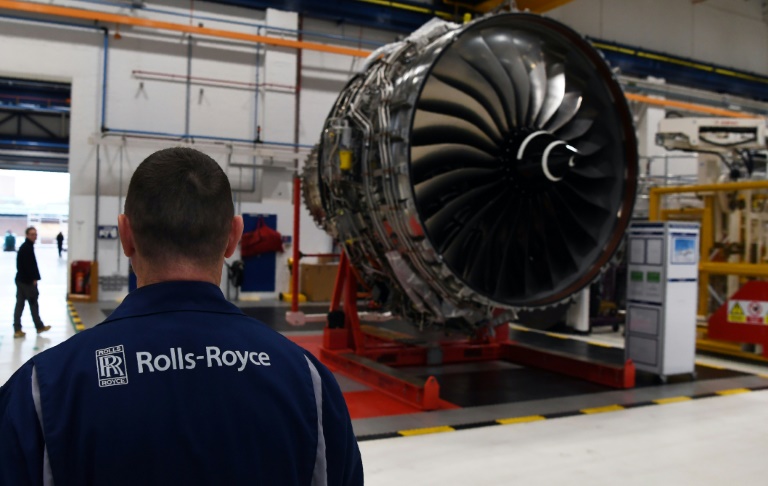Rolls-Royce, the British manufacturer of aircraft engines, said Tuesday it plans to axe up to 2,500 jobs worldwide, or about six percent of its staff, to further slash costs.
“It is estimated that 2,000-2,500 roles will be removed globally” under “plans for a simpler, more streamlined, organisation”, the group said in a statement.
Chief executive Tufan Erginbilgic, who began restructuring the group on taking the helm at the start of the year, said the company was “building a Rolls-Royce that is fit for the future.
“That means a more… efficient organisation that will deliver for our customers, partners and shareholders.”
The statement said the latest restructuring would “help Rolls-Royce build enhanced capabilities in key areas such as procurement and supply chain management, ensuring they are as strong as the company’s engineering and technical excellence”.
Previous CEO Warren East had axed more than 9,000 jobs and launched a major divestment programme in 2020 to navigate damaging pandemic fallout across the aviation industry.
In a quick turnaround under its new boss, Rolls in August posted first-half net profit totalling GBP1.2 billion ($1.5 billion), compared with a loss after tax of GBP1.6 billion a year earlier.
Shares in Rolls jumped 2.1 percent to 217.90 pence in early trading following the announcement.
London’s benchmark FTSE 100 index on which Rolls trades edged up 0.2 percent overall.
“One of the best performers this year has been Rolls-Royce, the share price has more than doubled as the turnaround plan set in motion by… East and carried on by new CEO Tufan Erginbilgic has continued apace,” noted Michael Hewson, chief market analyst at CMC Markets UK.
Richard Hunter, head of markets at Interactive Investor, said the Rolls-Royce share price had soared more than 130 percent this year also thanks to the recovery in air travel.
Shares won a further boost Tuesday from the announcement of the job cuts, “given savings which could amount to up to GBP200 million”, he added.
Away from aircraft engines, Rolls-Royce is engaged in developing small nuclear reactors that could provide power on the Moon, thanks to funding from the UK Space Agency.
The group, best known for its engines powering Airbus and Boeing aircraft, is working alongside UK universities including Oxford on the space project and hopes its first car-sized reactor would be ready to be sent to the Moon by 2029.
Erginbilgic, a dual UK and Turkish national, worked for more than 20 years at energy major BP.







